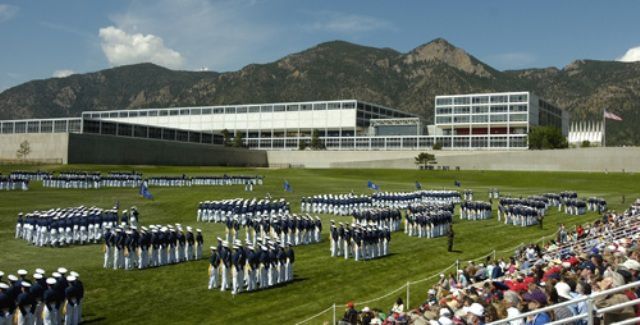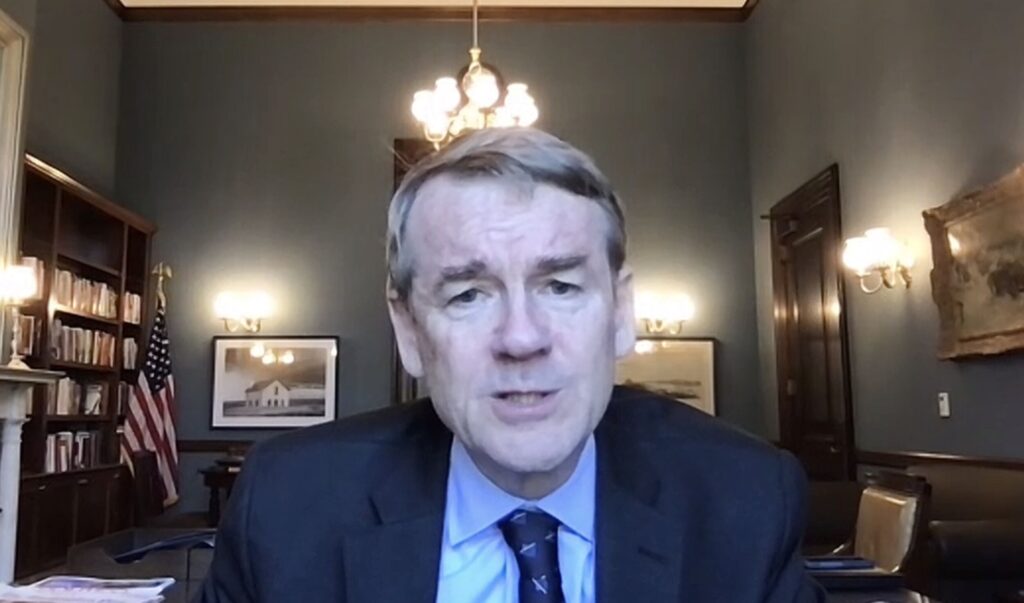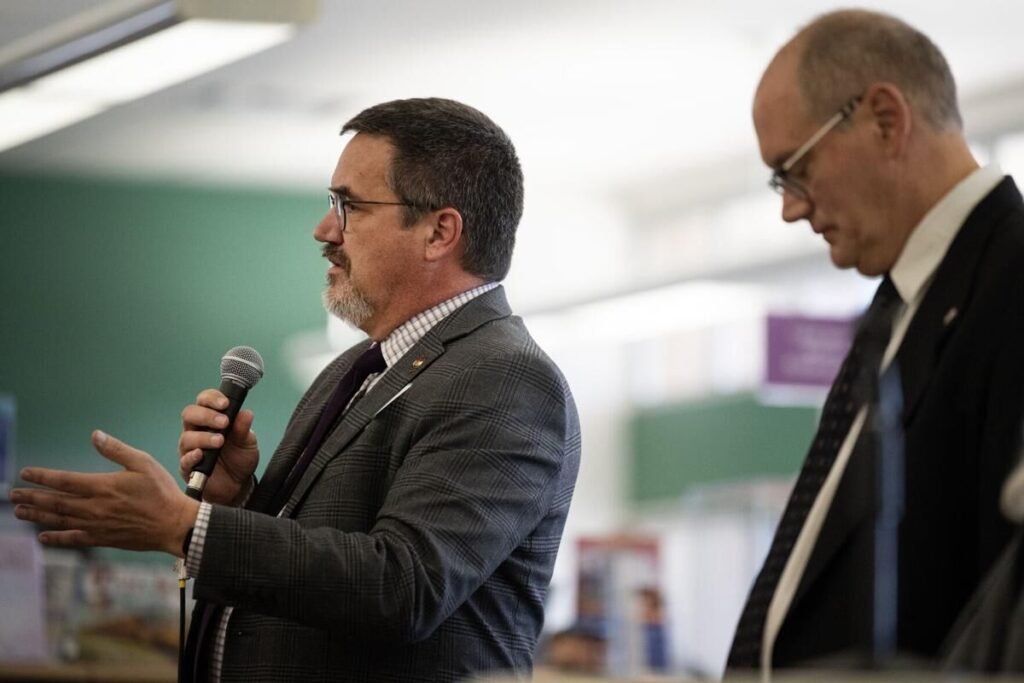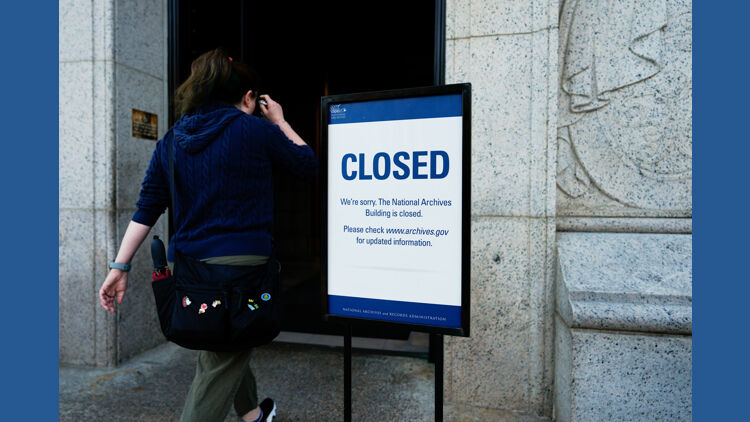The Adelson primary at the Republican Jewish Coalition
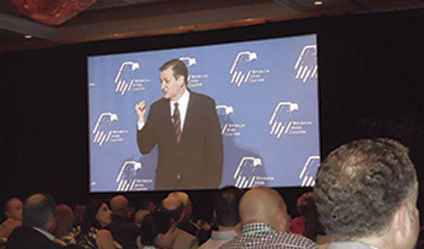
Ninety miles outside Las Vegas you begin to see the first indications there must be more than creosote bush and cholla cactus somewhere up ahead. Electric transmission lines start to converge on and then parallel I-15, delivering the electrons required to light up ‘The Strip’ — reportedly visible to space station astronauts at night. What better place for the Republican Jewish Coalition to meet each year than Sheldon Adelson’s Venetian hotel and casino? No other American city is as dedicated to hedonism and sin, or more likely to outrage the mullahs in Iran. Confirming the evidence that a propensity for gambling and nicotine addiction reside on the same genes, Nevada casinos remain smoking zones — no nanny state protections like Colorado. On the drive from the airport, a faded and peeling sign stands before a trash strewn, vacant lot announcing the ‘Islamic Information Center’. When or whether it will ever open appears improbable.
Adelson was your garden-variety billionaire when he purchased the Sands 25 years ago. Adding a convention center and scraping off the original casino, once stomping grounds for Sinatra’s ‘Rat Pack’, The Venetian and its companion, the Palazzo, were erected as glamorous replacements. But, it was Adelson’s success in securing rights to open gaming palaces in Macau, the former Portuguese colony on China’s south coast, and Singapore that vaulted him into the ranks of the 10 or 20 wealthiest men in the world. By 2012 he emerged as one of the largest — perhaps the largest — Republican campaign donors in the nation, bestowing $100 million on campaigns across the country. Much of this largesse was directed to the ill-fated Gingrich candidacy. This year Sheldon and his wife, Miriam, appear determined to follow their heads rather than their hearts. They are also generous donors to medical, addiction and other non-profit initiatives through their family foundation. This year’s Republican Jewish Coalition meeting was originally intended to showcase the cream of the party’s 2016 Presidential candidates. Just three days before last weekend’s event, however, POLITICO reported the Adelsons were thought to have settled on Marco Rubio as their horse during the primary races ahead. What was expected to be a field of eight or nine candidates dwindled to just four. Rubio was not among them. Neither was Jeb Bush or Scott Walker.
Although John Boehner, former President George Bush and Israeli Ambassador Michael Shermer were scheduled to speak during the weekend, the sole events open to the press were the Saturday morning speeches from Ted Cruz, Rick Perry, Rob Portman and Gov. Mike Pence of Indiana. This must have been at the insistence of the candidates since reporters were treated much like a ‘fifth column’ of potential saboteurs, roped off from the bagels and coffee, and consigned to a restroom on the floor below. While I rode the escalator downstairs for a jolt of caffeine ($5/cup), a security guard accompanying me remarked, “I can’t believe they won’t give the press a cup of coffee.” Shaking his head, he added, “These aren’t my kind of people!” Perhaps 500 of the 800 registered delegates greeted the quartet of prospective candidates. First up was Ted Cruz. Eschewing the podium, Cruz wore a clip-on microphone, pacing back and forth across the stage and speaking without notes. For those who may have expected a firebrand, Cruz served up the national collegiate debate championship chops that are likely to make him a formidable antagonist during the primary debates ahead.
He greeted his audience with the question, “Is this the ‘Ready for Hillary’ group?” As laughter subsided he suggested that Hillary was seeking an email security chief for her campaign. “Fortunately, Lois Lerner is available for the job,” he jibed. This was certainly insider humor, but his audience was informed enough to get the joke. Before he turned to the red meat issues of Iran and Israel, he lamented the fact that 65 percent of recently polled Americans believe their children will have a worse life than they enjoy. “The central issue in this primary will be trust,” he cautioned. “Any candidate who appears here knows to say, ‘we should stand with Israel’ — unless you are a blithering idiot. But talk is cheap!” Cruz then mentioned Iran’s attempt to appoint an identified terrorist as its Ambassador to the United Nations. He went on to explain that he had co-sponsored a resolution with Democrat Ben Cardin of Maryland prohibiting known terrorists from residing in Manhattan. Their initiative passed both houses of Congress unanimously.
Pointing out that, “I was the first Senator to call for the resignation of John Kerry after he called Israel the next apartheid state,” Cruz proceeded to lambaste Hamas for using children as human shields in order to protect their missiles. Partnering again with Cardin, the pair introduced another bill labeling this practice a ‘war crime’. He criticized the nuclear negotiations underway with Iran, calling it a ‘terrible deal’. He also attacked his Democratic colleagues for their refusal to appear with Elie Wiesel following Benjamin Netanyahu’s address to Congress. He then took a swipe at the New York Times editorial page for criticizing his Presidential campaign as a lost cause because “Washington elites” can’t stand him. “That’s the point of my campaign,” he exulted to a standing ovation. “People are hungry for someone who will tell them the truth.” He berated the mainstream media for characterizing Republicans as either stupid or evil. “By the way, stupid is better. But, the media have invented a third caricature for me, which is crazy.” Wrapping up his remarks at precisely 30 minutes, he fielded questions for 15 more. Cruz used this opportunity to accuse the White House of leaking details of the indictment against Bob Menendez once the New Jersey Democrat spoke out against the impending Iran deal. Cruz reported that an Iranian general recently stated that the destruction of Israel was non-negotiable. “If someone tells you they want to kill you, believe them!” he exclaimed. When asked about the perception that he doesn’t play well in the sandbox with others he replied, “Others have chosen to throw rocks at me. I have not reciprocated. I do not speak ill of any challenger.” He closed by offering two promises, “No one will work harder … and I will take the high road.” It was hard to quarrel with the Las Vegas Review-Journal’s headline the following day, “Cruz appears to excite crowd more than other speakers.”
Rick Perry seemed a different man than the hesitant candidate of 2012. Standing squarely behind the podium he delivered a well-crafted address with polish and surprising emotion. Frequently clenching and waving his fists, he communicated a combative physicality as he complained of the “…weakness, vacillation and appeasement” in Washington. He introduced Hitler, Churchill and Putin as men of strength and resolve. He railed against the nuclear negotiations, asking “How are we supposed to trust the Iranians when they are slipping weapons to the Houthis?” He brought his audience to their feet time and again with lines like, “Intolerance cannot be appeased, it must be confronted,” and “…tolerance ends where anti-Semitism begins.” He promised to move the American embassy from Tel Aviv to Jerusalem and alleged, “Our President suffers from delusional thinking — he refuses to acknowledge we are at war with radical Islam. We do not intend to mediate a 1,300-year civil war between Islamic factions.” Perry promised to deliver advanced weapon systems to Poland and the Baltic states on “freedom’s new frontier,” to wage wars with overwhelming and crushing force and to provide approvals for vastly expanded LNG exports to Europe. Accusing the Russians of using their energy as a weapon, he suggested, “…we need the largest arsenal in the world. My plan is to bankrupt Russia!” His remarks sounded more like a tent revival sermon than a campaign speech, but they certainly roused the audience. Quickly 45 minutes had been filled and the former Texas Governor departed without taking questions, arousing suspicion that perhaps he didn’t wish to run that risk in 2016 whenever it could be avoided.
Rob Portman, the Ohio Senator up for re-election to a second term next year, never came out and directly announced he was running for President. In fact, his wonkish dissection of national issues felt more like an audition for vice president. Portman offers an outstanding resume, having run the Congressional Budget Office and served as George W. Bush’s international trade representative — something of an anti-Sarah Palin. You could actually imagine this guy in the White House without breaking into a cold sweat. He added Ukraine to the list of nations to whom we should be shipping weapons. He also complained about the President’s dismissal of “Death to America” rallies in Tehran, led by Ayatollah Khameini, as “just politics, …while (being) willing to lecture Prime Minister Netanyahu on how he should conduct his campaign.” Portman expressed an understanding for why “…the siren song of isolationism sounds attractive after Iraq and Afghanistan; but it is time to gather our NATO allies to help Ukraine at their moment of peril. If we don’t fight for human rights and democracy, who will? We must serve as the watch guards on the wall of freedom — by destiny, not by choice.” It was in response to audience questions where Portman evidenced his broad command of international affairs and the arcane mechanics of government. Tromping deep into the weeds, he explained the intricacies of designing trade agreements that prevent Middle Eastern countries from discriminating against Israel.
At first Mike Pence presented himself as something of a court jester, reeling off a series of jokes and quips, followed by a litany of his achievements as governor. “Indiana is on the move under Republican leadership,” he asserted. Apparently the Hoosiers are the “largest school voucher” state in the country, and its system of health savings accounts for MEDICAID clients, which won a federal waiver, has proven a successful alternative to Obamacare. After a few minutes passed, he said, “Of course I didn’t come here to talk about Indiana. No, let me correct that. I didn’t come here just to talk about Indiana.” He then extolled the zeal of small town support for Israel noting that, “The love for Israel, the passion for defending and supporting Israel echoes through the Heartland of this country.” Pence commended Speaker Boehner for having invited Benjamin Netanyahu to address a joint session of Congress and closed by quoting from George Washington’s letter to the Hebrew congregation of Newport, R.I., acknowledging a shared birthright of freedom and liberty among American revolutionaries, including “…the sons of Abraham.” The governor’s first question inquired about the recent dust-up in Indiana over the right to religious protections, which he fended off with an assurance that the legislation had been intended to act “…as a shield, not a sword.” He then bragged about “Hoosier hospitality”. A former, long serving member of Congress, Pence was quizzed on whether the damage to American-Israeli relations was now irreparable. He assured the delegates that among the broad membership of Congress, those ties “…have never been stronger, on both sides of the aisle.”
Ari Fleischer, George W. Bush’s first press secretary, managed the “spin cycle” give-and-take with reporters. He bragged about the strength of the Republican field, which he contrasted positively with the “forced coronation” of Hillary on the Democratic side. He went to considerable lengths to explain that the emotional responses to Cruz and Perry’s remarks reflect a genuine concern Israel might be abandoned by its historical ally. He ducked questions about which candidate he personally supported by explaining his role as a network commentator requires him to remain neutral. He did mention, however, that while Scott Walker had not appeared because of a scheduling conflict, he had dispatched both his campaign manager and fundraiser to confer privately with delegates. “That was smart and it was noticed,” he added. A Coalition Board member, Fleischer shrugged off questions about Adelson’s preference by saying, “Sheldon will not be shy about announcing his choice once he makes it.” A question regarding whether Jeb Bush may have been damaged among Jewish Republicans by Jim Baker, the former Secretary of State to his father George H. W. Bush, who recently met with a group of “J Street” Republicans that frequently opposes much of Netanyahu’s bellicosity were deftly turned aside. Fleischer pointed out that although the meeting had been a “mistake”, Baker does not serve as a foreign policy advisor to the younger Bush. Ever the Bush family consigliere, he explained, “My old boss, George W. Bush, will be our keynote speaker tonight. That’s a message our delegates will hear.” He also indicated that, “The RJC doesn’t expect to reverse a hundred years of Democratic voting patterns. George H. W. Bush received 11 percent of the Jewish vote 20 years ago. Mitt Romney received 32 percent. If we take 40 percent next year, that will be progress.” Then he closed with a parting swipe at the weakness of the Democratic “bench.”
—Miller Hudson is a public affairs consultant. He can be reached at mnhwriter@msn.com.








